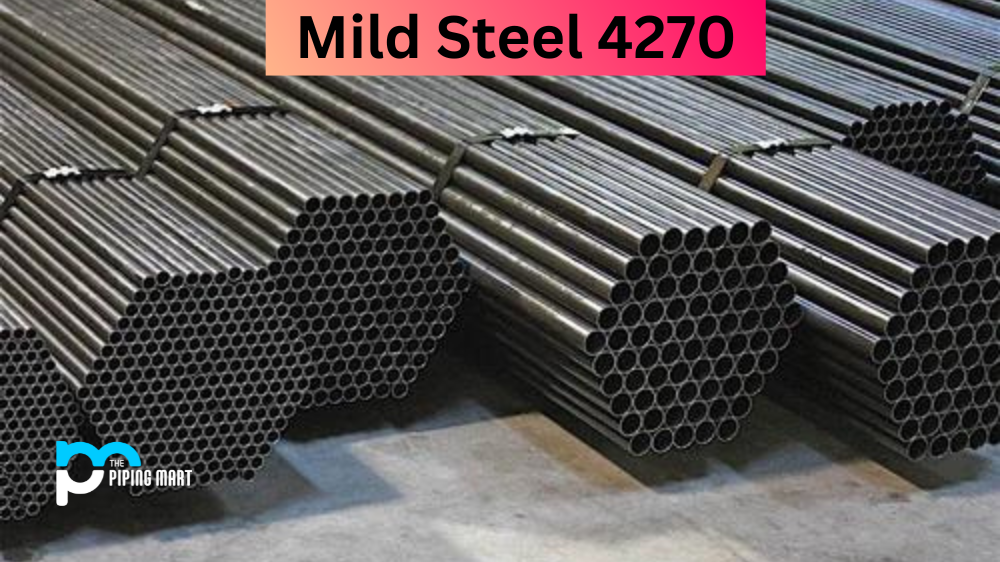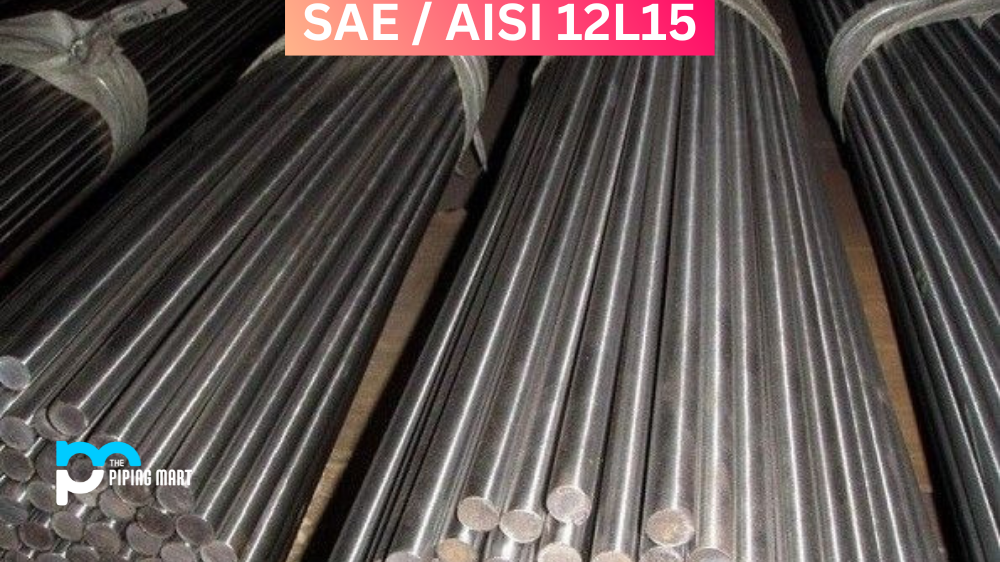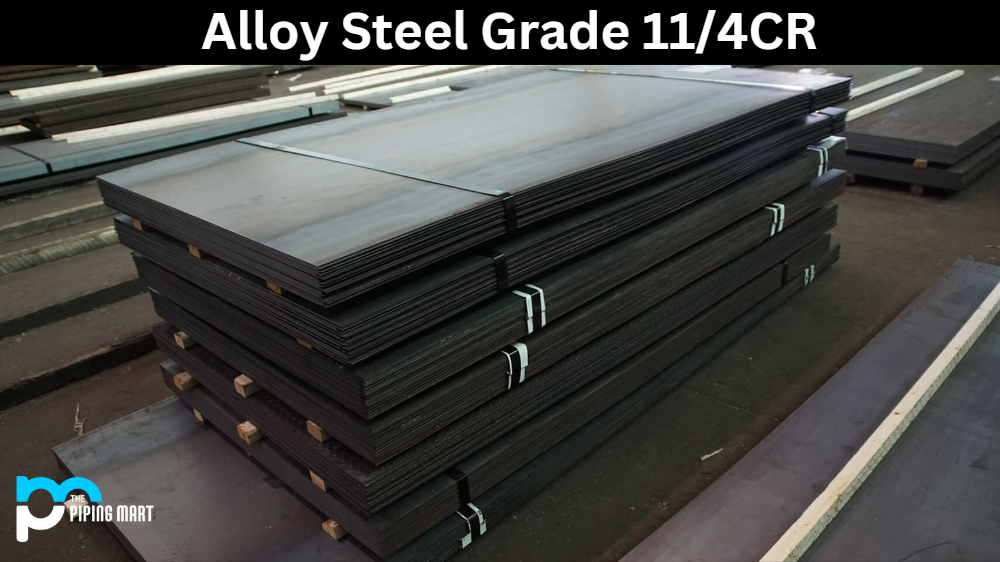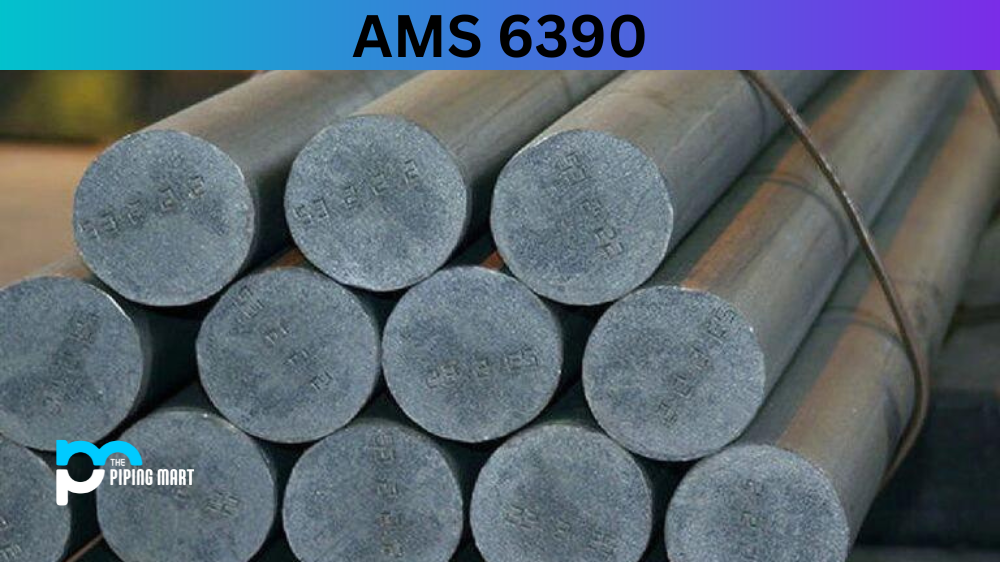Mild steel 4270 is an alloy composed of iron and carbon. It has a range of properties that make it ideal for use in a variety of projects, from engineering and construction to industrial manufacturing. Let’s take a closer look at some of the key characteristics of mild steel 4270, how it’s used, and how to best maximize its potential. Mild Steel 4270 is a type of low carbon steel that can easily be welded and formed into various shapes. Its chemical composition includes a maximum of 0.15% carbon and 1.2% manganese, making it a popular choice for manufacturing applications. The UNS Number for this steel is S42700, and it meets the ASTM A36/A36M-08 standard. The versatility of Mild Steel 4270 allows it to be used in a variety of industries, including construction, automotive, and manufacturing. Its strength and affordability make it a preferred option for many projects. Overall, Mild Steel 4270 is a reliable and durable material for various applications.
What Forms of Mild Steel 4270 is Available at Piping Mart?
- Nut
- Bar
- Bolt
- Pipe
- Screw
- Tubing
- Valves
- Washers
- Flanges
- Fasteners
- Electrodes
- Stud Bolts
- Sheet Plates
- Pipe Fittings
- Forged Fitting
- Instrumentation Fittings
Mild Steel 4270 Composition
Mild steel 4270 stands out as a favorable option for welding due to its minimal sulfur and phosphorus content. This composition facilitates welding processes and contributes to the steel’s overall weldability. Beyond its weld-friendly characteristics, mild steel 4270 boasts a blend of essential elements, including Chromium, Nickel, Molybdenum, and Manganese. These components bolster its strength and confer corrosion resistance, expanding its suitability for diverse applications. Moreover, the adaptability of mild steel 4270 extends to its alloying potential. Depending on the application’s specific requirements, this steel variant can be further alloyed with metals like copper or aluminum. Such alloying enhances and tailors certain qualities, making mild steel 4270 a versatile choice for projects where a combination of strength, corrosion resistance, and application-specific characteristics is crucial.
Mild Steel 4270 Chemical Properties
Mild steel, with its approximately 0.15 percent carbon composition, stands out as a versatile and cost-effective form of steel. Its 4270 Chemical Properties contribute to its widespread use across various applications. Notably, mild steel’s relatively low melting point and robust corrosion-resistant characteristics make it well-suited for applications like storage tanks and container constructions, where resistance to corrosion and a moderate melting temperature are essential. One of the key advantages of mild steel is its high weldability, allowing for easy cutting, reshaping, and construction into diverse forms to meet the specific needs of a project. This quality makes it a preferred choice when adaptability and customization are paramount.
Mild Steel 4270 Mechanical Properties
Mild steel 4270 has excellent mechanical properties; its yield strength is between 250 and 350 MPa (megapascals), while its tensile strength is between 400 and 600 MPa. This makes it highly durable and very resistant to wear and tear or deformation when exposed to large amounts of stress or pressure. It also has high ductility and malleability, which makes it easy to shape into whatever form is desired without compromising its strength or integrity in any way.
Mild Steel 4270 Physical Properties
The physical properties of mild steel 4270 are determined by its composition; these include density (7.85 g/cm3), thermal conductivity (45 W/mK), electrical resistivity (0.00001 Ohm-m) and specific heat capacity (468 J/Kg*K). These properties make it useful for many applications where thermal insulation or conductivity are important factors in achieving optimal performance. Its density makes mild steel 4270 particularly useful for applications requiring lightweight components but with strong structural quality.
| Grade | Y.S.(min.) Mpa (kg/mm²) |
T.S. (min) Mpa (kg/mm²) |
Percentage Elognation (min) 5.65 v S0 = GL |
| Fe 410 | 235 | 410 | 15% |
| Fe 450 | 275 | 450 | 13% |
Mild Steel 4270 Heat Resistant
Mild Steel, also known as low-carbon Steel, is prized for its strength, durability and corrosion resistance, making it a popular choice in the construction industry. It can even resist temperatures of up to 4270 degrees Fahrenheit before becoming too soft or prone to damage. This heat resistance makes mild Steel a great option for manufacturing items where high temperatures are common, such as car engines and machinery. With its combination of properties, mild Steel is easy to work with and long-lasting, ensuring projects built with it last for years.
Mild Steel 4270 Uses in Industries
Mild Due to its combination of mechanical, chemical, physical and metallurgical properties, mild steel 4270 is used in a variety of industries, including automotive manufacturing, shipbuilding, aerospace engineering, medical equipment production, construction projects such as bridges or buildings, industrial machinery fabrication etcetera. Furthermore, due to its corrosion resistance qualities, it can also be found in items such as kitchen utensils or cooking equipment that require frequent contact with water or moisture-heavy environments without becoming damaged over time due to rusting or wear from exposure.
- Construction Industry
- Automotive Industry
- Manufacturing Industry
- Shipbuilding Industry
- Energy Industry
Mild Steel 4270 Corrosion Resistant
Mild Steel is an excellent option for corrosion resistance due to its alloy makeup. 4270 is the designation used for mild Steel, though certain elements of its production will vary depending on the specific job functions. With excellent strength and hardness as well, mild Steel has become a popular choice for all kinds of applications, ranging from oil & gas and railroads to construction. Thanks to the high percentages of iron and manganese in it, this form of Steel can boast superior corrosion protection when exposed to outdoor environments or everyday wear and tear. Plus, due to its cost-effectiveness and toughness, it’s a great choice for almost any metalworking project!
Steel 4270 Heat Treatment
Mild Steel is known for its malleable properties and the fact that it is easy to shape, making it an ideal material for machinery and other equipment. However, 4270 heat treatment takes the malleability of mild Steel to a whole new level. This process alters the chemical structure of the Steel and optimizes its performance. It provides excellent wear resistance, tensile strength, better fatigue resistance, fracture toughness, and ductility. In addition to these features, 4270 heat treatment gives mild Steel an improved corrosion resistance while also increasing its fatigue strength, making it ideal for applications where failure is not an option.
Mild Steel 4270 Machining
Machining with mild Steel is a versatile task, and it’s easy to see why it’s so popular. With its ability to be used in many applications, mild steel 4270 is a strong yet durable option when you need structural strength as well as malleability. It can handle heavy loads while still being malleable enough for complex machining processes – making this a top choice for skilled machinists looking for versatility and reliability. Whether you are looking for smooth finishes or contoured shapes, mild steel 4270 is the perfect choice for your machining needs.
Mild Steel 4270 Welding
Welding with mild steel 4270 is a widely embraced and versatile technique applicable to an extensive range of materials, spanning thin sheet metal to heavier plates. This welding method particularly excels in the construction of robust structures such as building frames. The welds produced through mild steel 4270 welding exhibit commendable strength and reliability coupled with effective corrosion resistance, making it a preferred option across various industrial applications.
Conclusion:
Mild steel 4270 is an alloy composed primarily of iron and carbon, with additional elements added depending on the application needed for maximum performance output from this versatile metal alloy. Its combination of mechanical strength with chemical resistance that allows for welding without fear of contamination from foreign materials makes mild steel 4270 extremely useful in many different fields ranging from automotive engineering all the way up to aerospace applications there really isn’t much this metal cannot do! So if you need something durable yet lightweight with excellent overall performance quality, then you should definitely consider using mild steel 4270 in your next project!

Meet Bhavesh, a seasoned blogger with a wealth of knowledge and experience. From metal products manufacturing to retail, Bhavesh has a diverse background in various industries and is dedicated to sharing his insights and expertise with readers.




